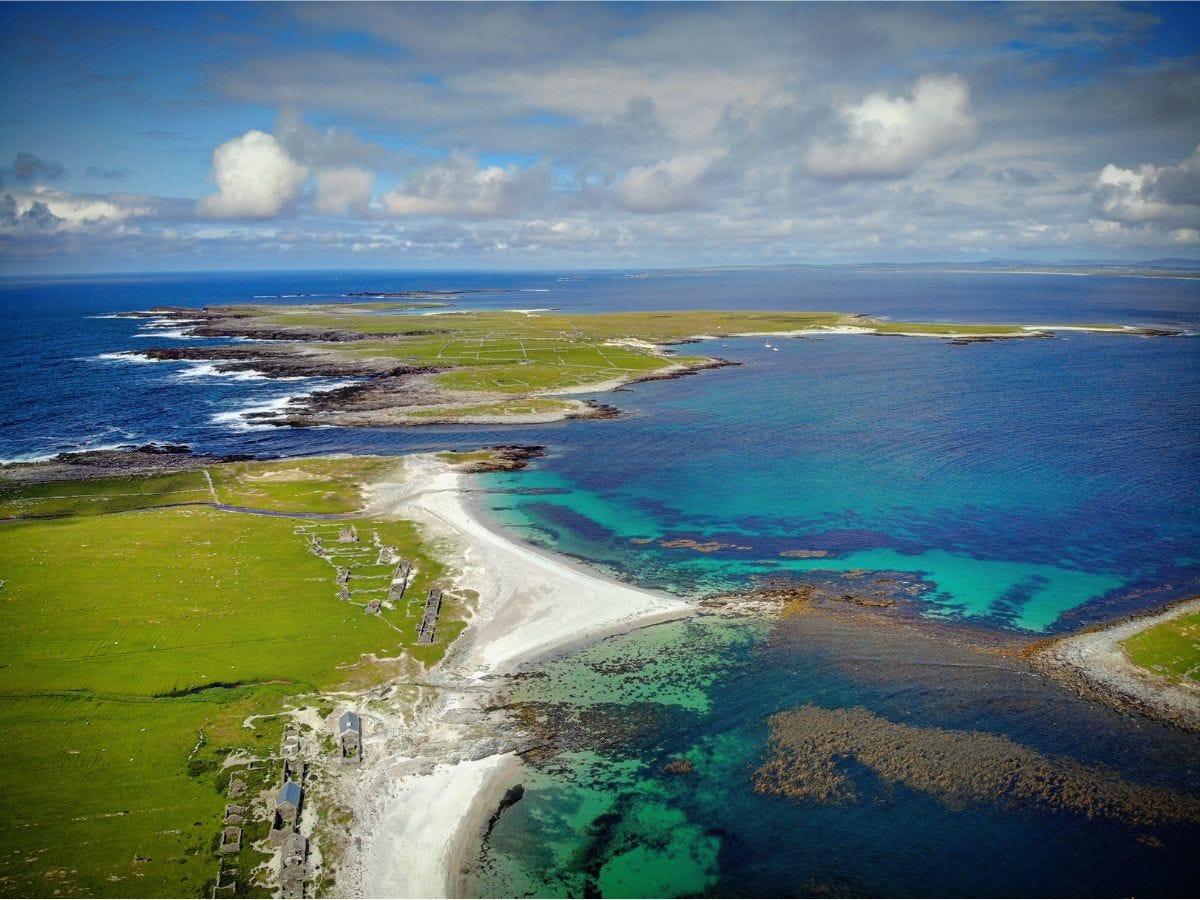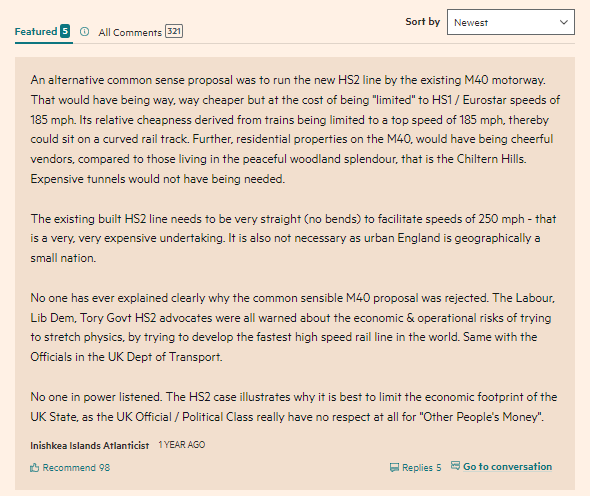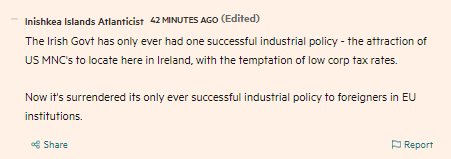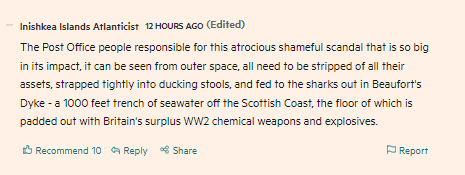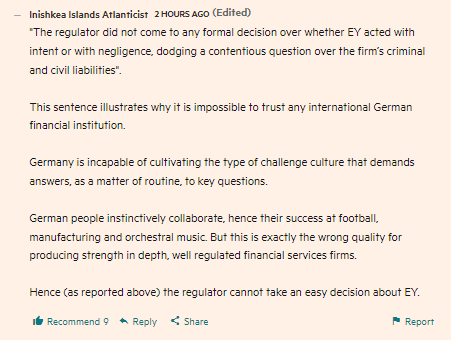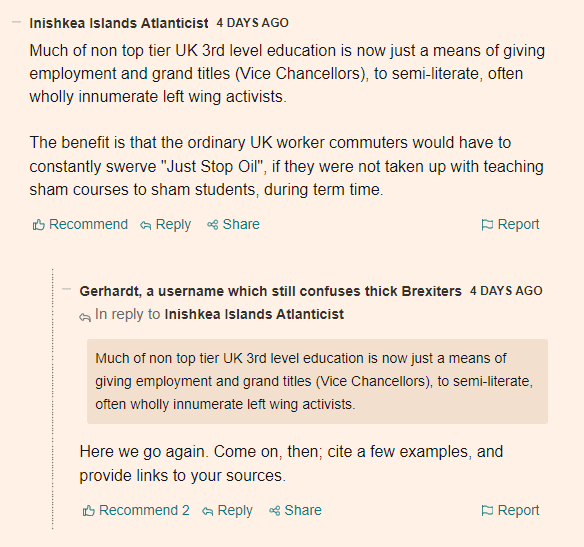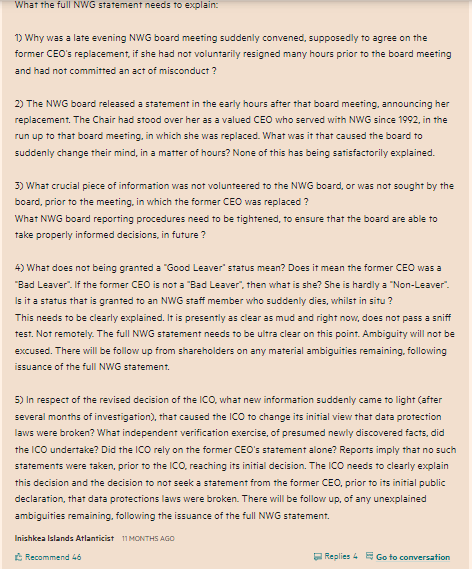I discovered the Financial Times’ Long Room’s forum in early 2022 which was a valuable resource for anonymous yet thoughtful discussion on topics in finance and current events. Research reports were readily accessible so much so that I managed to piece together much of Zoltan Poszar’s Global Money Notes, which outline his very idiosyncratic thinking on funding markets that I find incredibly valuable, and sell side pieces from banks of yesteryear including Salomon Brothers and Merrill Lynch. Most of all, it was interesting to read people’s unfiltered thoughts on current events free of the chains posed by commenting publicly. Behind usernames like Tyrannosaurusrex1 were clearly people who had put thought into their comments. As has happened numerous times in my life, I caught things towards their end, Spring 2022 saw the forum close - it turns out research providers don’t like people circulating their reports on murky forums. The FT comment section came to the rescue and one user has continued to stand out - the Inishkea Islands Atlanticist.
The Inishkea Islands
The Inishkea Islands lie just north of County Mayo in Ireland and are well known locally for having sustained a cult up until the 19th century. Two islands lie there, north and south, a microcosm of the main island, as a pair the islands are named after Saint Kea who is believed to have lived there in the 5th century. Though pre-21st century Ireland is often associated with some sort of ultra-orthodox Catholicism, the truth is more nuanced: the Norman invasion of Ireland was sanctioned by the Papacy to extinguish Celtic Christianity, an interpretation of Christianity heavily influenced by Druidry, whose remnants persisted to varying degrees through the centuries and especially remained in remote places such as the Inishkea Islands. Bertrand Russell’s History of Western Philosophy’s section on Catholic philosophy gives a particularly good overview of how and why early Irish missionaries differed in very fundamental ideas from their mainland counterparts. The inhabitants of the Inishkea Islands found themselves worshipping a rock, called the Naomhóg meaning ‘little saint’, at various times of the year well into the 19th century as recorded by Robert Jocelyn in 1851.1 The rock was cast into the sea by a Fr. O’Reilly in the 1890s as unearthed by T.H. White who spent considerable time travelling around the West of Ireland.2 The Inishkea Islands themselves and the story of the rock worshipping cult that lived there is not well known and so the Inishkea Islands Atlanticist immediately stood out in the comments section. Why append Inishkea Islands with ‘Atlanticist’? The commenter may be a proponent of Atlanticism, the idea close cooperation on economic, political and defence issues between North America and Europe is warranted, or could have a deeper understanding of the islands themselves. The etymology of Naomhóg is the feminine name Niamh who takes Oisín to Tír na nÓg, the land of everlasting youth purported to lie in the Atlantic, in the Tales of the Elders.
I can only surmise some details regarding the identity behind the Inishkea Islands Atlanticist. I can never confirm or falsify such conjectures and so the story I construct is in fact and will remain fictional. The commenter is likely British and of Irish descent. They post well-reasoned responses to pieces on British fiscal largesse and so I deduce they are British. Based on how irate their replies can be, Inishkea Islands Atlanticist is probably a man. For some reason that deserves careful study, men appear more likely to angrily type into the void that is the Internet.
I am absolutely convinced they have some Irish connection that probably stems from County Mayo, and more specifically, North Mayo - how else could he be aware of the Inishkea Islands? The islands themselves are little known, even in Ireland, and their connection to a cult and Irish mythology is typically preserved among villages in the north of the county as well as folklorists. In response to an article on a forecasted increase in the cost of HS2, a rail projected in England, he posts the below:
The Inishkea Islands Atlanticist likely spends some time in Ireland throughout the year, maybe they have a holiday home near or on the Inishkea Islands? Responding to an article on Apple’s €13bn tax liability to Ireland after a European Court of Justice (ECJ) ruling, he posts:
Where ‘here’ is a giveaway.3 I disagree with the spirit of the comment, I would argue Ireland’s education policies have also been a fundamental part of its successful industrial policy which is something I hope to address in a future post and I don’t see ECJ involvement in this issue as ‘foreign interference’. Nonetheless, any story describing Ireland’s industrial success hinges on taxation policy. There are generational differences in how Ireland’s Corporation Tax policy is viewed, Jack Pierse’s thoughts on the issue are worth a read as someone who has been at the coal face of transforming lending. So I think it is reasonable to suggest Inishkea Islands Atlanticist is someone in their 60s - the generation that really believes in the Corporation Tax story as an attractive risk/reward fiscal strategy in my experience. So now I suspect the Inishkea Island Atlanticist is an Irish-British man in their 60s.
The train of thought he is in his 60s and so experienced what the writer Frank McCourt calls a ‘typical Irish childhood’ of the time with corporal punishment is supported by Inishkea Island Atlanticist’s suggested punishment for those responsible for the Post Office scandal:
Only an Irishman of a certain generation could dream up this suggested punishment.4 Indeed, he has thoughts on the Germans too, spurned by revelations regarding the Wirecard audit.5 The Wirecard scandal is of particular interest to accountants and so Inishkea Islands Atlanticist may once have been a trainee accountant, potentially at a KPMG or PWC predecessor firm, and eventually became a financial institutions research analysts hence the interest in Wirecard.
His politics are definitely on the Right and so he has probably voted for Conservatives for much of his life. Shooting from the hip on UK universities’ policies regarding international students, he says:
The interest in the British education system underscores my belief he is in fact British and suspicion regarding current practices gives me a sense he favours apprenticeship models like accountancy for young people or at least in their format when he was in his 20s.6 His suspected age means he would have qualified as an accountant during the Big Bang, Margaret Thatcher’s period of financial deregulation that kickstarted the financialisation of London.
It turns out he is also likely to be a Natwest shareholder or may have spent time working in its predecessor, Royal Bank of Scotland. Last year, a series of events led to Natwest closing down Nigel Farage’s bank account, the Chief Executive Officer at the time, Alison Rose was forced to resign with the consequences described here. In typical Inishkea Islands Atlanticist fashion, his comment below gets featured on the thread:
He may have bought Natwest shares or received shares as part of a compensation package during time at its predecessor and did not vest all of these shares at the time of the rebrand so ended up with Natwest holdings. One could also argue he may just be concerned about the way in which a bank could arbitrarily remove access to an account for one of its users for apparently political reasons.
Regardless, all of these aspects of the Inishkea Island’s Atlanticist posts leads me to believe he is Irish-British, in his 60s, votes Conservative and was one of the scores of trainee accountants in KPMG or PWC that ended up as financial institutions analyst during the Big Bang and passed through RBS. The magic of the FT comment section is that you can find these people and construct some stories regarding their lives based on just a handful of comments. Perhaps there are others like me that have been driven to the comments section since the Long Room’s closure and use comments in this way. And, if so, I suppose we are not too dissimilar from that rock worshipping cult on the Inishkea Islands.
He recounts his travels in Ireland in ‘Progress of the Reformation in Ireland – Extracts from a series of letters written from the West of Ireland to a friend in England, in September 1851’ (1851).
The noted Arthurian spent World War 2 in Ireland and probably developed an interest in Irish mythology during that time which persisted for the remainder of his life.




